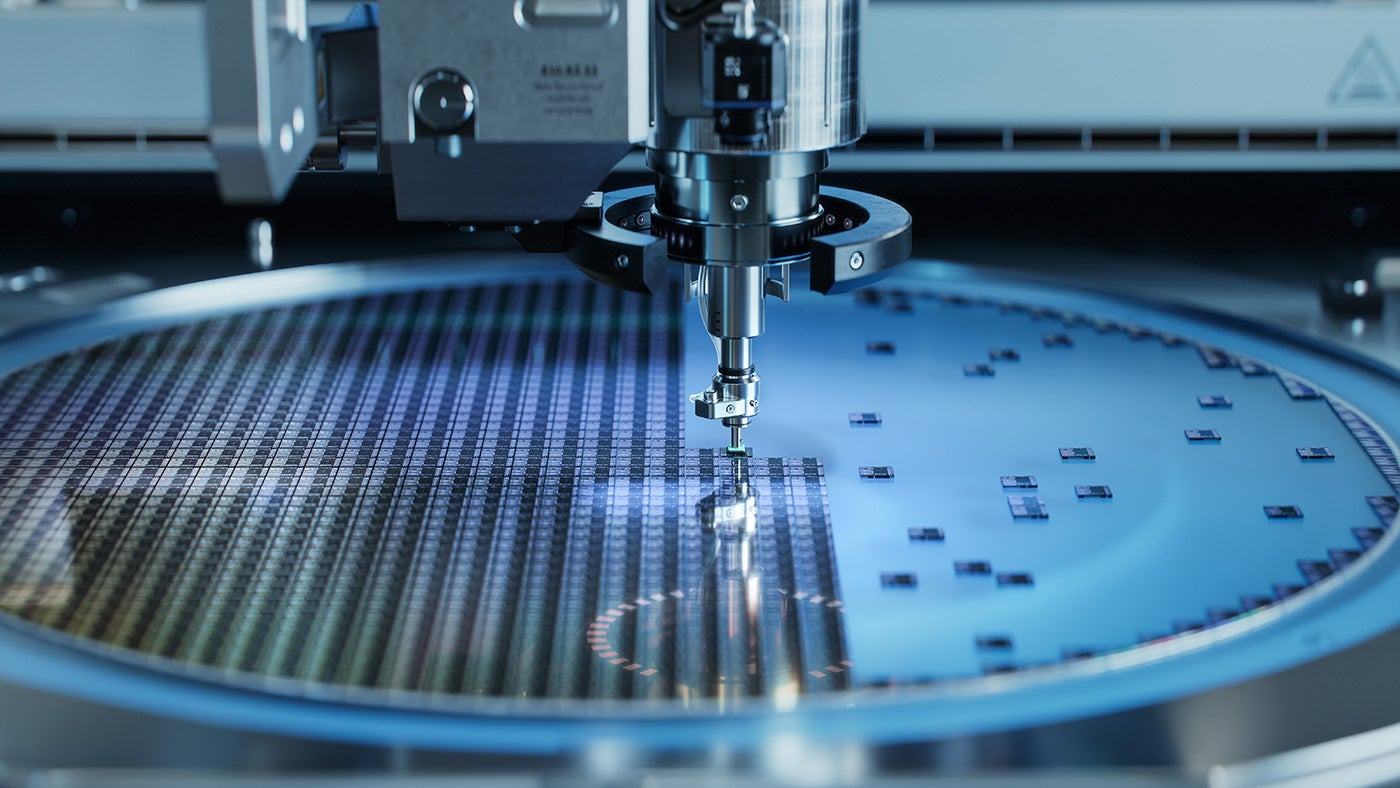
Although, the full impact remains to be seen, enough data is available for a US CHIPS Act analysis that provides important information on how well this effort will be in strengthening and securing the production of critical electronic devices today, and for the future.
CHIPS Act Funding
The table below provides a snapshot of funds allocation from the CHIPS Act since its ratification.
| CHIPS Act Analysis: Funding Timeline | |||
| Company | Announcement Date | Amount | Investment |
| Analog Devices | July 26, 2023 | $1 billion | Expansion of chip facilities in Oregon |
| BAE Systems | December 11, 2023 | $35 million | Modernization of fighter jet chip-making facilities in New Hampshire |
| Microchip Technology | January 6, 2024 | $162 million | Expansion of chip manufacturing plants in Colorado and Oregon |
| GlobalFoundaries | February 19, 2024 | $1.5 billion | Expansion of chip manufacturing facilities in New York and Vermont |
| Intel | March 20, 2024 | $8.5 billion | Construction and expansion of chip facilities in Arizona, Ohio, New Mexico and Oregon |
| Taiwan Semiconductor Manufacturing Company | April 8, 2024 | $6.6 billion | Support and expansion of chip fabrication plants in Arizona |
| Samsung | April 15, 2024 | $6.4 billion | Expansion of chip fabrication facilities in Central Texas |
| Micron Technology | April 25, 2024 | $6.1 billion | Support for memory chip manufacturing in Idaho and New York |
| Rocket Lab | June 11, 2024 | $24 million | Expansion of compound semiconductor plant in New Mexico |
| Entegris | June 26, 2024 | $75 million | Construction of FOUPs manufacturing plant in Colorado |
| Rogue Valley Microdevices | July 1, 2024 | $6.7 million | Construction of a pure play MEMS and sensor foundry in Florida |
| Silicon Wafers | July 17, 2024 | $400 million | Construction of new wafer manufacturing facilities in Texas and Missouri |
| SK Hynix | August 6, 2024 | $450 million | Construction of a high-bandwidth memory plant and R&D facility in Indiana |
CHIPS Act Analysis: Implications for Chip Making and PCB Design
The above funding timeline shows that the US CHIPS Act has significant implications for semiconductor manufacturing and PCB design and development.
Semiconductor Manufacturing
The CHIPS Act is expected to boost semiconductor manufacturing and help reduce design and development delays due to issues like long turnaround times to procure components by driving increased production, spurring investments in new facilities, and enhancing research and development (R&D) efforts. It also aims to bolster supply chain resilience by minimizing the dependence on foreign semiconductor producers. These effects, which affect electronic component and manufacturers most directly, are summarized below..
- Increased Domestic Production: The act is intended to boost domestic semiconductor production, enhancing the US’s ability to meet its needs and ensuring a stable chip supply for various industries, including automotive, electronics, and defense.
- Investment in New Facilities: The act provides funding and incentives for companies to build new US-based semiconductor fabrication plants, leading to increased capital investment, job creation, and technological advancements in the semiconductor sector.
- Research and Development: Significant portions of the funding are allocated to R&D initiatives to promote innovation and the development of next-generation semiconductor technologies, including advanced node processes, which are critical for maintaining technological leadership.
- Supply Chain Resilience: The act aims to mitigate risks associated with geopolitical tensions and supply chain disruptions by diversifying and localizing the supply chain.
PCB Design
The CHIPS Act will likely impact PCB design and development, as listed below, by fostering closer integration between IC manufacturers and providers that supply essential design products and services, like ECAD software, CAD libraries and reference designs, and component distributors. The intent is that these collaboration opportunities will translate into greater PCB design and development process efficiencies, shorter and more efficient supply chains, and a favorable impact on cost trends that determine profitability for IC manufacturers and product developers.
- Enhanced Integration: With increased domestic semiconductor production, PCB designers may have better access to cutting-edge components, which is expected to improve design integration and performance of PCB design in chip manufacturing.
- Shorter Supply Chains: Shorter supply chains can reduce component lead times, enabling faster prototyping and production cycles. Industries that require rapid development and deployment of new technologies will benefit most from this.
- Collaboration Opportunities: Increased funding for R&D and new plans in the US can foster closer collaboration between semiconductor manufacturers and PCB designers, resulting in more optimized and innovative PCB designs that leverage the latest semiconductor technologies.
- Economic Impact: The overall boost to the semiconductor industry can lead to broader economic benefits, including job creation and increased competitiveness of US-based PCB designers in the global market.
Overall, the Act’s goal is to create a more cohesive and resilient domestic supply chain, enhancing the competitiveness of the US semiconductor and PCB design industries. An important objective of the CHIPS Act is to encourage integrations within the electronics industry. For chip manufacturers, the best way to connect with industry service providers, as well as connect with potential customers, is by partnering with the industry’s leader in engaging engineers, UL.
Discover how Ultra Librarian helps manufacturers. With services and resources tailored to streamline CAD creation and amplify part downloads, Ultra Librarian empowers manufacturers to boost productivity and drive part downloads. By leveraging these tools, manufacturers can achieve greater success in today’s competitive market landscape.